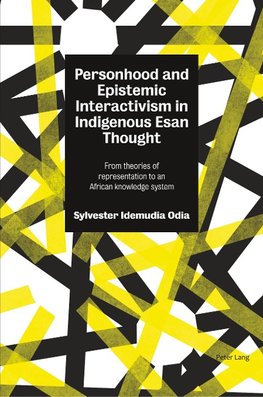
-
 Anglický jazyk
Anglický jazyk
Personhood and Epistemic Interactivism in Indigenous Esan Thought
Autor: Sylvester Odia
Epistemic interactivism, an aspect of the epistemology of representation, is a cognitive intercourse between the subject and person-object of knowledge that underlies the conception of a person in Esan thought. Traditional theories of representation (especially... Viac o knihe
Na objednávku, dodanie 2-4 týždne
59.22 €
bežná cena: 65.80 €
O knihe
Epistemic interactivism, an aspect of the epistemology of representation, is a cognitive intercourse between the subject and person-object of knowledge that underlies the conception of a person in Esan thought. Traditional theories of representation (especially as presented by Descartes and Locke) separated the subject from the object of knowledge, and classified persons and non-persons as object of knowledge. This separation and classification ignored the cognitive and moral values of persons, disengaged the subject from the world and burdened the self with solitude and isolation, and created propositional knowledge that dehumanised the relationship between the subject and person-object of knowledge. Within the theoretical framework of Hegel's epistemic interactivism (meliorated by Bowne's personalism) and Esan epistemology (in African philosophy), this book exposes the epistemic interactivism of Esan thought which unified the subject and person-object of knowledge on cognitive and moral grounds; thus providing an adequate basis for personhood and resolving the dehumanised relationship between the subject and person-object of knowledge in the traditional theories of representation.
Within the context of epistemic injustices, this book analyses the interactivist epistemology of indigenous Esan thought as an alternative epistemological conception of the person-object of knowledge which resolves the deficiency of the traditional theories of representation.
- Vydavateľstvo: Peter Lang
- Rok vydania: 2019
- Formát: Paperback
- Rozmer: 229 x 152 mm
- Jazyk: Anglický jazyk
- ISBN: 9781789972443












